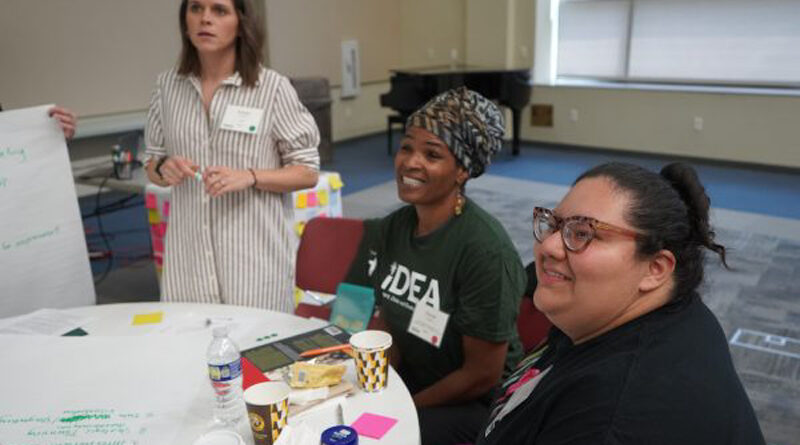Charlotte Urban Institute Helping Nonprofits Tell Their Stories
Data tells the story of our lives. It is gathered from our Apple watches, Netflix selections, and grocery membership cards.
What story does your data tell?
The stories our data tell are of great importance, as data helps us understand ourselves and make informed decisions for the future. This is also true of nonprofits, who use data to tell their stories time and time again to funders, prospective funders, the community, and their staff.
The Charlotte Urban Institute (Institute) is committed to helping equip nonprofits to tell their stories. In our traditional role, we act as third-party evaluators for our nonprofit partners. We help partners manage their data and understand what aspects of their programs are working and creating impact, and what areas could be improved.
With support from an anonymous funder, the Institute is now developing another pathway to support nonprofit data storytelling: the Impact, Data, and Evaluation Academy (IDEA).
Empowering Nonprofits: A New Data Training Initiative
In May 2024, the Institute hosted a four-hour Group Level Assessment (GLA). This participatory research event was used to inform the curriculum design and development of IDEA, a new nonprofit certificate program in data management and evaluation. Forty-eight (48) racially- and gender-diverse participants attended the event. Of the attendees, 22 represented small, grassroots nonprofits; 10 represented medium-to-large nonprofits, 13 were content experts; and three participants were funders.
The GLA generated over 1,100 individual responses to 22 wall-mounted prompts. The prompts centered around nonprofit assets, barriers, and learning styles. Below are a few examples of the of prompts included in the exercise:
- “Program/client success looks like ______”
- “In my experience, the relationship between funders and nonprofits struggles when____”
- “As we move forward with developing a data and evaluation curriculum, we need to consider____”
Participants then identified themes that arose from individual responses, and the research team, led by Rosalyn Allison Jacobs of ROI Impact Consulting, refined and condensed them.
From this research, three key findings were identified about the type of data-storytelling support Charlotte nonprofits need to better inform their work.
Key Findings
While the full executive summary can be found here, the three key findings from the research are as follows:
- Empathy and equity-focus are nonprofit strengths. The ability of small, grassroots nonprofits to serve clients with empathy and through an equity perspective is a strength. This includes centering clients and the community in the work, meeting clients where they are, and designing interventions around identified needs rather than being prescriptive and inflexible.
- Misalignments between nonprofits and funders are barriers to effective data management and evaluation. Specific examples included perceptions that funders prefer metrics that do not capture qualitative client outcomes and impact, that funders value return on investment (ROI) over human-centered factors, and that reporting requirements are “too heavy [and] takes time away from the real work.”
- Nonprofits need the curriculum to meet them where they are. All GLA participants stressed the importance of meeting nonprofits where they are, in terms of the scope and complexity of the curriculum content. There exists a continuum of educational needs and capacity among nonprofits that will need to be accommodated.
Next Steps (and a free resource!)
The Charlotte Urban Institute and our community and university partners are actively developing a course curriculum guided by findings from the GLA. In spring 2025, we will pilot a five-day certificate program in data management and evaluation, offered at no-cost for pilot participants. The course is specifically designed with small nonprofits in mind.
If your nonprofit organization is interested in learning more about this course, please reach out to Bridget.Anderson@charlotte.edu.

